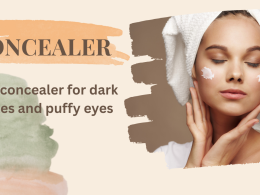Introduction:
As summer approaches, the importance of sunscreen cannot be emphasized enough. However, with the wide range of sunscreen options available, it can be overwhelming to choose the right one. One crucial consideration is the choice between mineral and chemical sunscreens. In this article, we will explore the differences between these two types of sunscreens and discuss their safety for both your skin and the environment.
Mineral Sunscreens:
Mineral sunscreens, also known as physical sunscreens, rely on mineral ingredients such as zinc oxide and titanium dioxide to provide sun protection. These minerals work by forming a physical barrier on the skin that reflects and scatters harmful UV rays. Mineral sunscreens are often preferred by individuals with sensitive skin or those seeking natural alternatives, as they are generally considered less irritating and suitable for a wide range of skin types.
Advantages of Mineral Sunscreens:
One of the main advantages of mineral sunscreens is their immediate effectiveness upon application. Unlike chemical sunscreens, which require a waiting period before becoming active, mineral sunscreens provide instant protection. Additionally, mineral ingredients are less likely to cause skin irritation or trigger allergic reactions, making them a safer choice for individuals with sensitive skin. Mineral sunscreens are also stable under sunlight, providing reliable and consistent protection throughout sun exposure.
Chemical Sunscreens:
Chemical sunscreens, on the other hand, utilize chemical compounds such as avobenzone, oxybenzone, and octinoxate to absorb and dissipate UV radiation. These ingredients work by undergoing a chemical reaction that converts UV rays into heat, which is then released from the skin. Chemical sunscreens are often favored for their lightweight, non-greasy formulations and ease of application.
Advantages of Chemical Sunscreens:
Chemical sunscreens have the advantage of being more cosmetically elegant, as they tend to be lighter in texture and easily blend into the skin. Their chemical filters can provide broad-spectrum protection against both UVA and UVB rays. Additionally, chemical sunscreens may offer a wider range of sun protection factors (SPF) and can be formulated with other beneficial skincare ingredients.
Safety Considerations:
When it comes to safety, both mineral and chemical sunscreens have their respective pros and cons. Mineral sunscreens are generally considered safe for the skin, as they physically block UV rays without being absorbed into the body. They are also considered reef-friendly and environmentally sustainable, as mineral ingredients are not associated with coral bleaching or ecosystem damage.
However, some chemical sunscreen ingredients, such as oxybenzone and octinoxate, have raised concerns due to their potential impact on marine ecosystems. These chemicals have been found in high concentrations in coastal waters and can contribute to coral bleaching and harm marine life. To address these concerns, some jurisdictions have banned or restricted the use of these chemicals in sunscreens.
Choosing the Right Sunscreen:
The choice between mineral and chemical sunscreens ultimately depends on personal preference, skin type, and environmental considerations. If you have sensitive skin, a history of skin allergies, or environmental concerns, mineral sunscreens may be a safer and more suitable option. However, if you prefer lightweight textures, easy application, and a wider variety of formulations, chemical sunscreens can also provide effective sun protection.
Conclusion:
When it comes to selecting a sunscreen, understanding the differences between mineral and chemical options is essential. Both types offer sun protection, but they differ in their mechanisms of action, safety profiles, and environmental impact. By considering your skin type, preferences, and environmental concerns, you can make an informed decision and choose a sunscreen that provides effective protection while aligning with your values. Remember, the best sunscreen is the one you will use consistently to safeguard your skin from the sun’s harmful rays.












